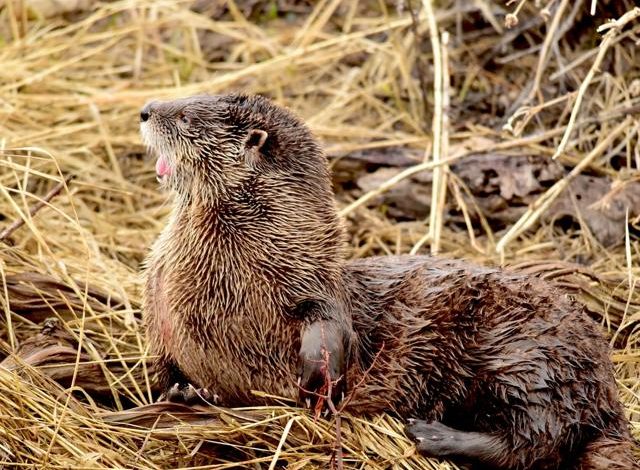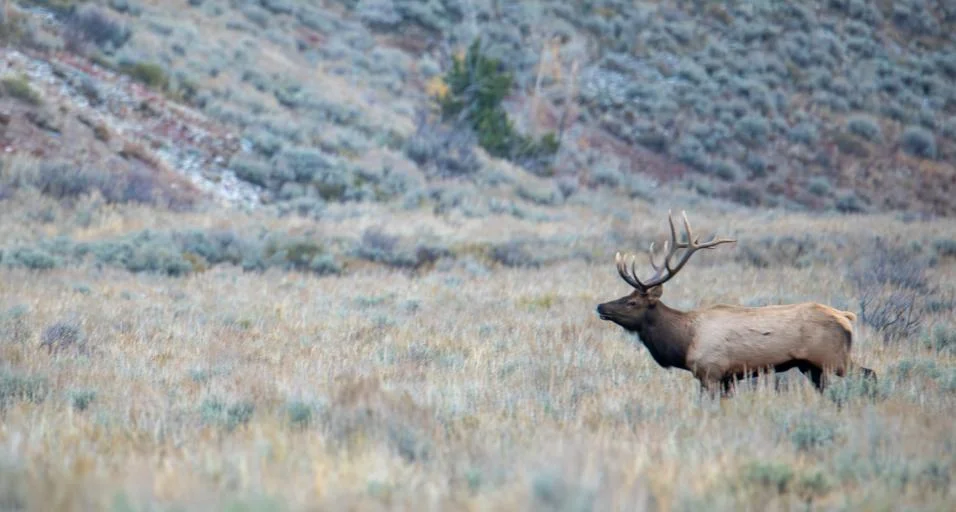Wyoming Senate Rejects Effort to Eliminate Protected Wildlife List, Advances Otter Bill

A recent effort to eliminate Wyoming’s 72-year-old protected wildlife list was halted due to constitutional concerns, while a bill addressing otter management continues to move through the Legislature, Gillette News Record reports.
Originally introduced as House Bill 45, titled “Removing otters as protected animals,” the legislation aimed to allow game wardens to manage otters in conflict situations. However, during a Senate committee hearing on Tuesday, Sen. Larry Hicks (R-Baggs) successfully amended the bill to also remove pikas and fishers from the protected list.
Hicks argued that Wyoming’s state-level protected species designation, which predates the federal Endangered Species Act (ESA) by two decades, was outdated and unnecessary. He sought to eliminate the category altogether, though federally protected species like black-footed ferrets, lynx, and wolverines would remain safeguarded under the ESA.
Sen. Bill Landen (R-Casper) was the sole committee member to oppose the amendment, later voicing his constitutional concerns on the Senate floor.
“I have to admit, fellow senators, we got out over the tips of our skis a little bit,” Landen said Wednesday.
He argued that the amendment significantly changed the bill’s scope, potentially violating Wyoming’s constitutional rule that a bill cannot be altered beyond its original intent.
Following Landen’s remarks, the Senate overwhelmingly rejected the amendment, restoring HB 45 to its original focus on otters.
Despite its narrower focus, HB 45 has not been without controversy. The bill was introduced by Rep. Andrew Byron (R-Jackson), a former fly-fishing guide, after encountering an otter family while fishing in Teton County’s Fish Creek. When Byron inquired about relocating the animals, he was informed that state law prohibited it.
“There are fears out there that this is an all-out attack, this is a free-for-all, anyone can do anything with otters,” Byron told senators. “It’s really, really not the case.”
The bill does not establish hunting or trapping seasons for otters, but it would reclassify them as non-game animals that could be killed with a permit. The Wyoming Game and Fish Department supports the measure, arguing that it would give wildlife officials flexibility in addressing conflicts.
“As we get species recovering in the state and spreading out, we often do see isolated conflict,” said Game and Fish Director Angi Bruce. “I personally believe that when we are able to go in and address conflict situations with landowners, it helps build support for that species.”
However, not everyone is convinced.
Sen. Tara Nethercott (R-Cheyenne) called for a more straightforward discussion, rejecting the notion that relocation was a viable option.
“I would appreciate it if we stopped talking about relocating them. Nobody’s going to relocate an otter,” Nethercott said. “They will be killed, and they’ll be trapped for their pelts. And so let’s just have an honest conversation.”
University of Wyoming wildlife professor Merav Ben-David, an expert on otters, also opposed the bill, arguing that removing protections now could threaten the species’ slow recovery.
“I think this bill is premature,” Ben-David testified. “Removing otters, at this point, from the protected list, puts at risk (their) expansion to other places in the state.”
According to Ben-David, Wyoming’s otter population was nearly wiped out during the fur trade era, surviving only in Yellowstone National Park. Since then, otters have gradually repopulated river basins such as the Snake, Green, Wind, and Shoshone, and are now beginning to appear in the North Platte River watershed.
Despite opposition, HB 45 has moved forward with strong legislative support. The bill easily passed committee votes and cleared the Wyoming House by a 52-8 margin. After 30 minutes of debate on Wednesday, the Senate approved it in a voice vote and advanced it through its second reading on Thursday. Only one more vote remains before it reaches the governor’s desk.
Although Hicks’ attempt to eliminate the state-protected species list was unsuccessful, the issue may resurface. Sen. Landen, who co-chairs the Joint Travel, Recreation, Wildlife, and Cultural Resources Committee, indicated that the topic could be studied further in interim legislative meetings between the 2025 and 2026 sessions.









The latest news in your social feeds
Subscribe to our social media platforms to stay tuned